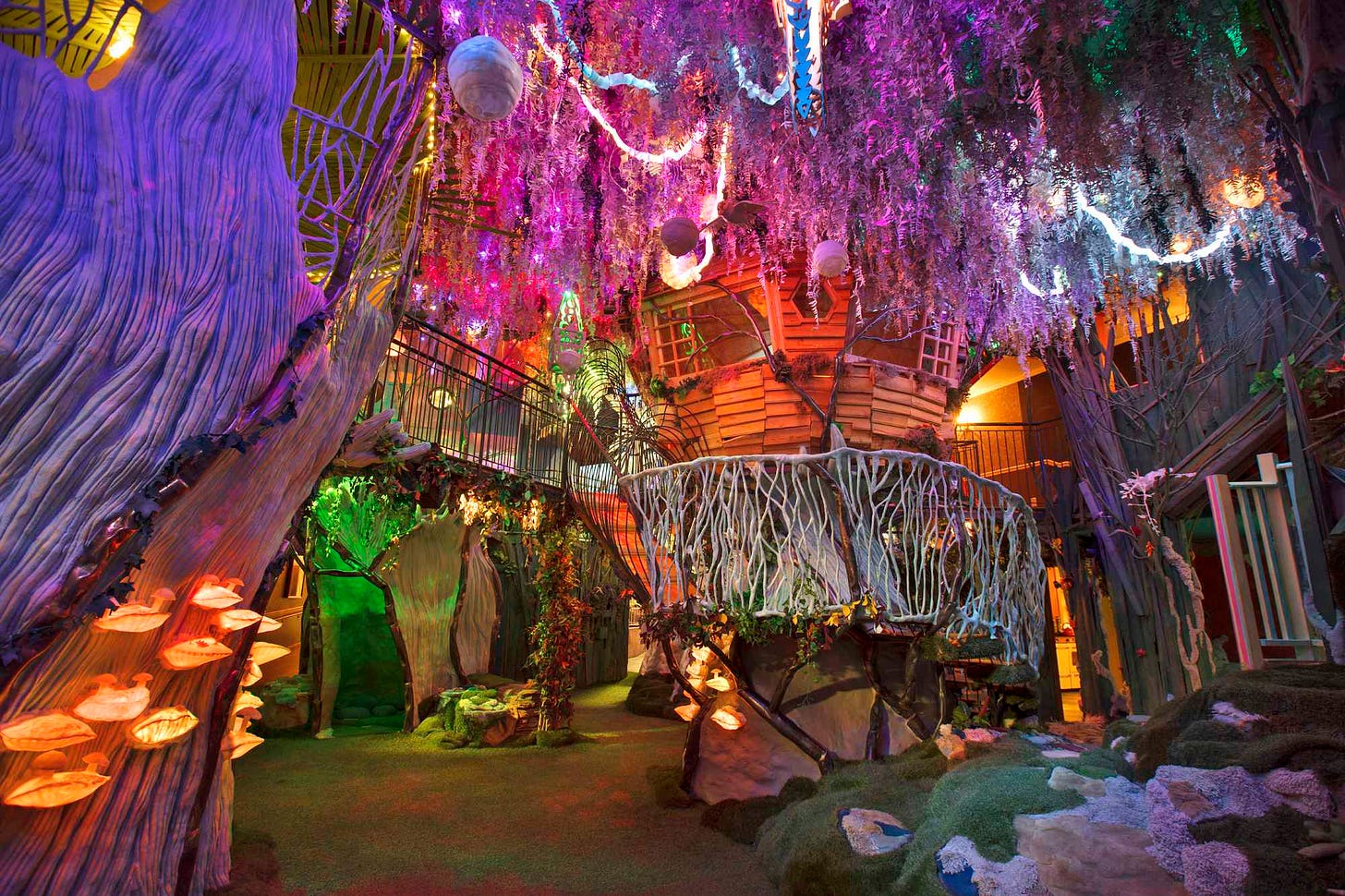Millennials will often give each other advice to run at top speed away from any employer that tells you their workplace is like family.
This is good advice! It is not unheard of at all for an employer to use and abuse the concept of a familial workplace to demand long hours for not enough compensation, and to make unreasonable asks of employees. It is bizarre to ask employees to put their coworkers on the same plane as what should be (in most cases)1 one’s first priority in life. I sure as hell will choose my siblings over my job in a heartbeat.
That said, like most black-and-white millennial advice, there is a truth that exists somewhere in the grey area. Working relationships are a huge part of our lives. They can be a source of great personal joy and great personal angst. It helps when the people you spend at least 40 hours a week with are people you enjoy being around. You will probably be more effective on a team with people whose well-being you give a shit about.
I think that language is important. I think it’s an unfortunate choice of words to characterize a working environment as being “like family” when you are intending to communicate that employees tend to form close relationships on the job. For new employees, that may actually come off as cliquey instead of what you may be intending, which is a welcoming environment.
Work friends are good, actually
Against my better judgment, I have formed close relationships with coworkers at all of my jobs. It has led in some cases to fulfilling friendships, and in other cases, it has led to a lot of heartache. When I started working in corporate America, I found myself extremely cautious with how closely I held working relationships.
In being so cautious, I ended up feeling pretty lonely at that job. I ended up making friends with one of the business analysts purely to talk about Dungeons and Dragons2, and to get some feeling of camaraderie at work.
At my current job, I actually feel quite strongly about and very protective of my teammates. The closeness I feel with them does not come without some uneasiness. That’s not necessarily a bad thing. When I was first dating my now husband, I felt a similar level of uneasiness. It is risky to form close relationships, romantic or platonic, with anyone. To love at all is to be vulnerable, especially with something that can end as quickly as a working relationship can.
But adult life is about taking risks, so I have taken a risk and become quite close to my team at work. This is not by accident. One of the ways our boss has built our team’s camaraderie is through data team outings. These have been regular opportunities (around once a quarter, sometimes a bit less often) for us to spend time together during work hours in a purely social context.
Taking the time to build this camaraderie while on the clock has been critical in developing trust and a positive working relationship on our team. I can say very confidently that I would have a much harder time receiving or giving feedback on my team if we did not spend time together doing team outings where there was zero expectation of work talk.
These team outings have also been integral in building trust. I have had the most difficult year of my adult life this year (and last year, to be honest), and I haven’t doubted once that my team has had my back when I have had to fight fire after personal fire. I have also had the chance to step up for them in similar ways, but those are their stories to tell.
I offer some inspiration for your next team outing to try to accomplish similar feelings of care and support on your team, along with some fun anecdotes from my favorite outings.
A nerd’s guide to data team outings
Two of my favorite data team outings have been hikes. We’ve gone when the weather is good, and we’ve typically hiked around 6-7 easy-to-moderate miles. Hikes are an absolute moneymaker for team bonding.
If you have someone new on your team, or someone who is introverted and nerdy enough that they can struggle in social situations that require more eye contact (it’s me, hi), a hike is the outing for you. Go somewhere beautiful together, accomplish a physical goal together, and walk and talk. The words flow so much more easily when you don’t have to look at one another and hyperfixate on whether your facial expressions are weird or whether your nonverbal cues are right or anything that those of us with a touch of social anxiety can deal with.
While you’re on a hike, you can just appreciate the world around you and enjoy each other’s company without worrying about social cues too much. Our two team hikes (that we’ve done so far!) have been instrumental in helping me feel a sense of social security and inclusion on our team.
Of course, your mileage may vary. If you don’t live in Colorado and close to some fantastic hiking, that’s really sad for you and you should do something about it.3
But maybe you aren’t the hiking sort! Perhaps you and your team want to do something in the city together that will create a similar morale boost. We’ve had ourselves a city outing that was similarly fruitful.
During our company’s winter home week4, we went to Denver’s Meow Wolf exhibition. This was actually the first time I had ever been to Meow Wolf, and discovering the installation alongside my coworkers was a blast. Exploring the art and the mysteries within it together, sitting underneath massive indoor lit trees, and pontificating on whether wormhole travel was actually possible created a similar feeling of togetherness that hiking did. At one point, my boss and I even jokingly wondered if we ourselves were actually real. A bit of existential humor goes a long way.
But what if I like boundaries?!?!?!
Here’s the thing. Your mileage is always going to vary when it comes to people-centric issues in the workplace. I believe in a couple of truths that I think will probably hold water in most workplaces.
Work is more enjoyable when you have friends.
You are more likely to play nice in the sandbox with your coworkers when you have taken the time to get to know them as people. You’ll have more patience for them, be more willing to accept feedback, and offer feedback more readily if you know and respect each other as humans.
I believe that these things are true. I also believe that capitalism can be and often is a vicious hellscape that can make many workplaces a minefield for the employees within. A team hike isn’t going to solve the problem of an overbearing, micromanaging boss.
Trying out these outings at your own workplace is probably only going to see success if you already have a reasonably healthy workplace culture in the first place. If expectations are already reasonable on you, and your stress level is manageable, I recommend trying some of this stuff out. It’s been really fruitful for me, and I have found a great deal of meaning in forming close relationships with my data team homies.
I still cringe pretty hard at boomers who say their coworkers are like family. And while it makes me a pedantic asshole, the more useful phrase for me has been familial. I feel a similar (but not equal) level of care, protectiveness, and closeness to the humans that I spend a third of my life with. I have already experienced some of the requisite heartbreak of losing easy access to those humans thanks to a round of layoffs, but I don’t regret making the friendships in the first place.
“To love at all is to be vulnerable. Love anything and your heart will be wrung and possibly broken. If you want to make sure of keeping it intact you must give it to no one, not even an animal. Wrap it carefully round with hobbies and little luxuries; avoid all entanglements. Lock it up safe in the casket or coffin of your selfishness. But in that casket, safe, dark, motionless, airless, it will change. It will not be broken; it will become unbreakable, impenetrable, irredeemable. To love is to be vulnerable.” -CS Lewis
Don’t glare at me, toxic families exist!
I’ll talk about D&D to literally any human, so hit me up.
I joke!! Or do I….
A wild, exhausting, fun week where the whole company converges on Denver. We wrap up the year, do team bonding events, and talk strategy for the next year. It’s a blast.





